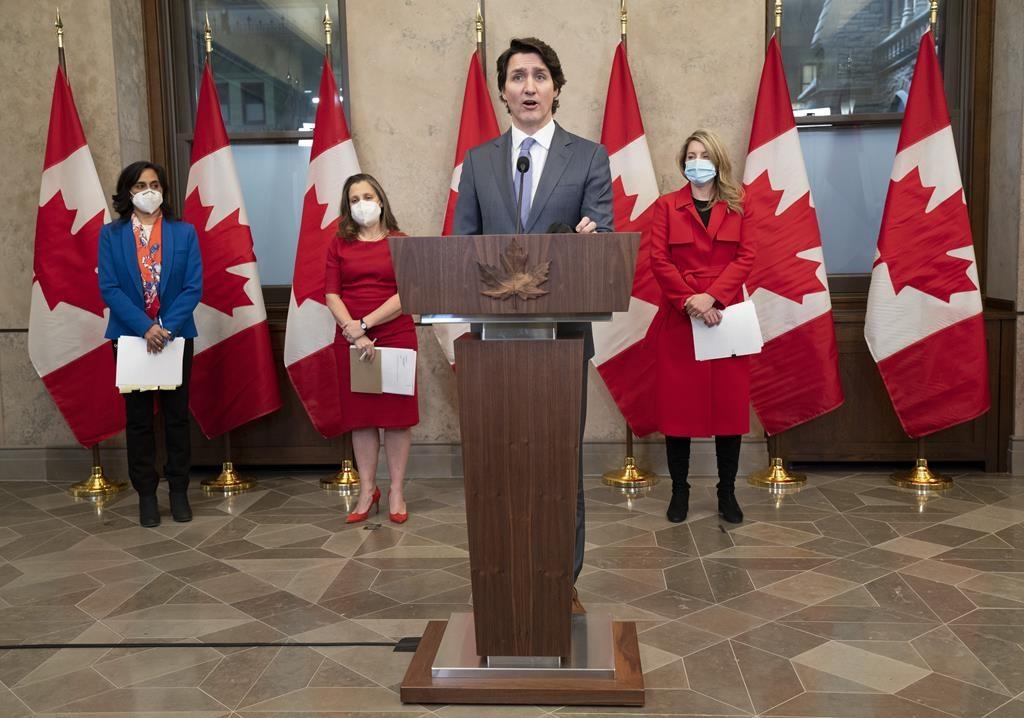OTTAWA—Defence Minister Anita Anand says the government believes in the importance of bolstering NATO’s eastern flank in response to Russia’s military buildup, and that discussions are underway around increasing Canada’s military presence in eastern Europe.
Yet the minister, who was speaking on Wednesday from the Latvian capital of Riga—her last stop in a three-country tour that included visits to Ukraine and NATO headquarters in Brussels—declined to say when a Canadian decision could come.





